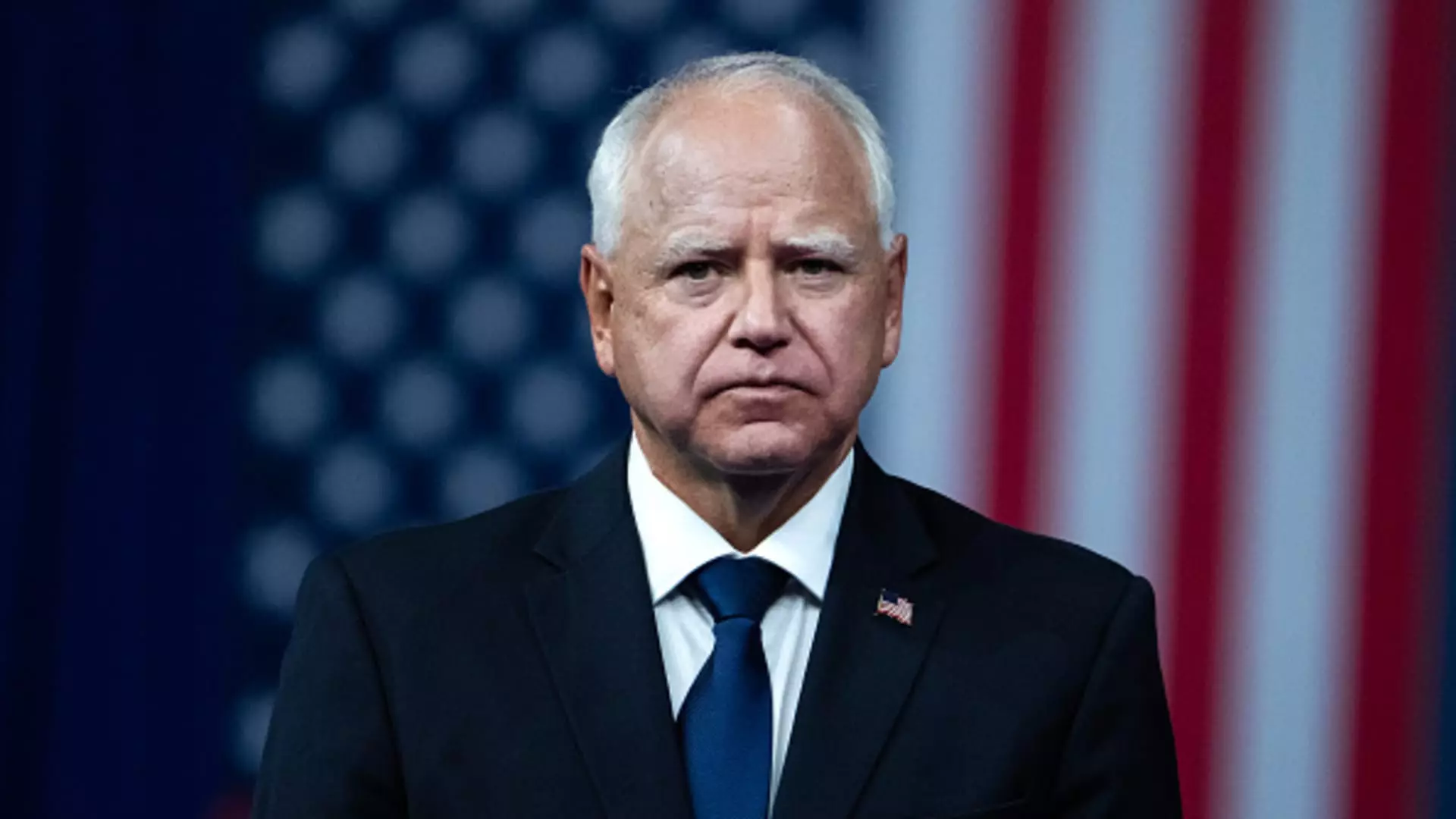The financial landscape of political candidates can significantly influence public perception and voter sentiment. As the Democratic running mate of Vice President Kamala Harris, Minnesota Governor Tim Walz presents a unique case study in financial modesty and transparency amid a political environment often characterized by significant wealth disparities. This article delves into Walz’s financial profile, contrasting it with those of other notable politicians and highlighting the implications of his fiscal choices.
Tim Walz’s most recent financial disclosure reveals an absence of stocks, bonds, or real estate holdings, with a yearly salary as governor amounting to $127,629. His decision to forgo a raise to $149,550 underscores a commitment to public service over personal gain. Should Walz ascend to the vice presidency, his compensation would increase to $284,600 according to projected 2024 figures. This potential salary increase doesn’t overshadow the essence of his existing financial profile, which reflects a decidedly modest lifestyle.
In 2019, Walz and his wife sold their Mankato home, choosing to reside in the governor’s mansion. The couple had initially purchased the four-bedroom property in 1997 for $145,000 and later sold it for $315,000. This real estate transaction further emphasizes Walz’s financial conservatism and his focus on community service rather than wealth accumulation.
Contrasting Wealth in Political Figures
Walz’s financial profile starkly contrasts with that of Republican presidential nominee Donald Trump, a billionaire with a business empire. Additionally, Trump’s running mate, Senator JD Vance of Ohio, possesses an estimated net worth between $3 million and $10 million—figures significantly higher than Walz’s. Democratic nominee Kamala Harris also holds a substantial portfolio, which includes securities valued between $800,000 and $1.75 million and cash reserves estimated between $550,000 and $1.1 million. Such comparisons highlight the disparity within political finance, particularly among candidates vying for the nation’s highest offices.
Furthermore, the financial rapport of Kamala Harris and her husband, Doug Emhoff, includes a Brentwood home valued around $5 million, underscoring the often-exclusive financial world in which many politicians operate. This contrast raises critical questions about the representation of average citizens by politicians with varying degrees of wealth.
Walz’s lack of stock ownership illustrates a broader trend among certain politicians who prioritize transparency and minimize potential conflicts of interest. His modest financial holdings make him an unusual figure in the contemporary political landscape—one increasingly populated by candidates whose wealth grows during their time in office. As a former teacher, Walz’s background might resonate with constituents who value education and public service over monetary gain.
The transparency of Walz’s financial disclosures also invites scrutiny and discussion regarding the ethics of wealth in politics. For many voters, the absence of significant financial assets portrays Walz as relatable and earnest, reinforcing the perception that he remains connected to the lives of everyday citizens. His earlier congressional disclosure shows a history of limited investments and a focus on pension plans linked to public service, indicative of a life spent in service rather than wealth accumulation.
Future Disclosure and Public Perception
Although Walz has yet to provide detailed disclosures regarding any cash in bank accounts, he is expected to file a new report as a federal candidate within the next month. The anticipation surrounding these disclosures emphasizes the importance of transparency in political candidacy. The campaign has not commented on his existing financial situation, leaving voters curious about how his fiscal philosophy might evolve.
Tim Walz’s financial profile stands out in a political arena marked by extremes, presenting a narrative of moderation, transparency, and commitment to public service. His personal financial decisions may resonate with many voters who are seeking authenticity in their political representatives. As we observe the unfolding political landscape leading up to the elections, Walz’s case serves as a critical reminder of the varied economic backgrounds among political figures and the weight that transparency carries in establishing trust with the electorate.


Leave a Reply